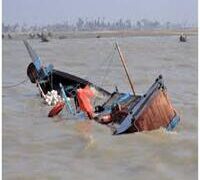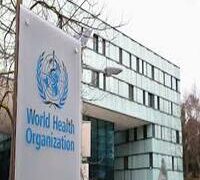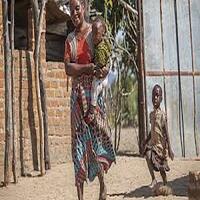In Zimbabwe, 580,000 children are at risk of malnutrition, according to the United Nations children’s agency, as the effects of El Nino worsen a humanitarian crisis of economic hardship and outbreaks of diseases such as cholera.
The larger problem is the children’s education. School has become a luxury. Children drop out to work. Teenage girls are forced to skip class because there is not enough water to wash during their periods, or because they must stay home to babysit their siblings as parents go out in search of work. Some girls are forced to marry to ease financial burdens, according to the U.N humanitarian agency.
The crisis is overshadowed by others in places like Ukraine, Gaza and Sudan, humanitarian organizations say, meaning that funding from donors can be hard to come by.
“There should be a sense of urgency,” said Yves Willemot, UNICEF spokesman for Zimbabwe.
The drought puts the education of close to 2 million children at risk in Zimbabwe, with some dropping out of school for good and others forced to miss class, the U.N. humanitarian agency has said. More than 45,000 children dropped out of school during the previous El Nino in the 2015-2016 farming season, 3,000 more than the annual average, it said. The government is still collating figures for this latest El Nino.
Regional countries also devastated by weather extremes face similar challenges. In Malawi, hit by a vicious cycle of floods and drought in the past three years, fewer children are attending class. At some schools, half the pupils are usually absent, according to a report in May by local and international humanitarian organizations including the Malawi-based Youth Net and Counselling.
“Families must choose between feeding or sending children to school,” the report said. Volunteer teachers are no longer reporting at some schools “further deteriorating the quality of education.”
Neighboring Zambia is using a school feeding program targeting over 2 million children to boost school attendance. Zimbabwe recently launched a similar program amid concerns about increased absenteeism and dropout rates caused by the drought, said Taungana Ndoro, the director of communications and advocacy in the education ministry.
“The assurance of at least one decent hot meal per day has been a strong incentive for families to prioritize sending their children to school,” he said.
It might be too late for many who drop out, especially girls, said Nyaradzo Mashayamombe, an activist and founder of Tag a Life, an organization whose #everychildinschool campaign is pushing to end school fees for children from poor families.
“When drought hits like this, the immediate defense is marriage. The mere offer of a way out, an escape, can be very luring to a girl or even the parents,” she said, adding that many end up trapped with older, abusive husbands.
“There is no way out,” she said. “It takes away their potential, their dreams are cut short, and the poverty cycle continues.”
SOURCE: Rédaction Africanews





































